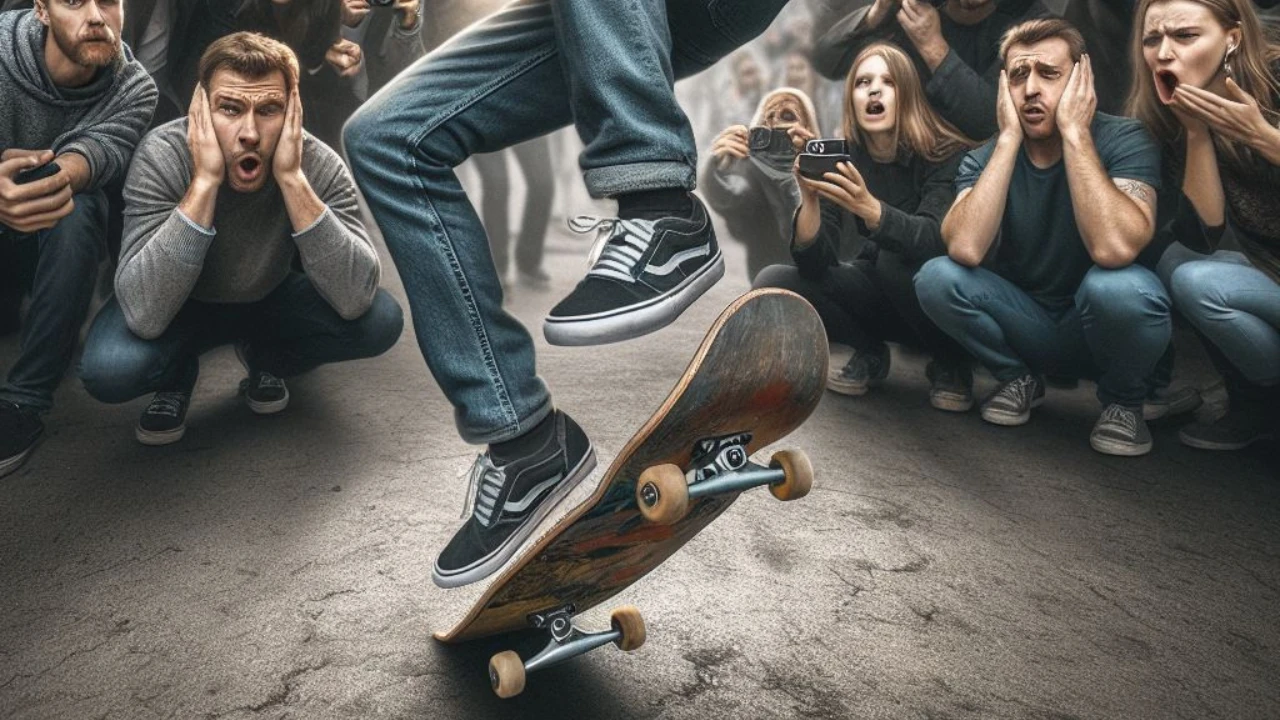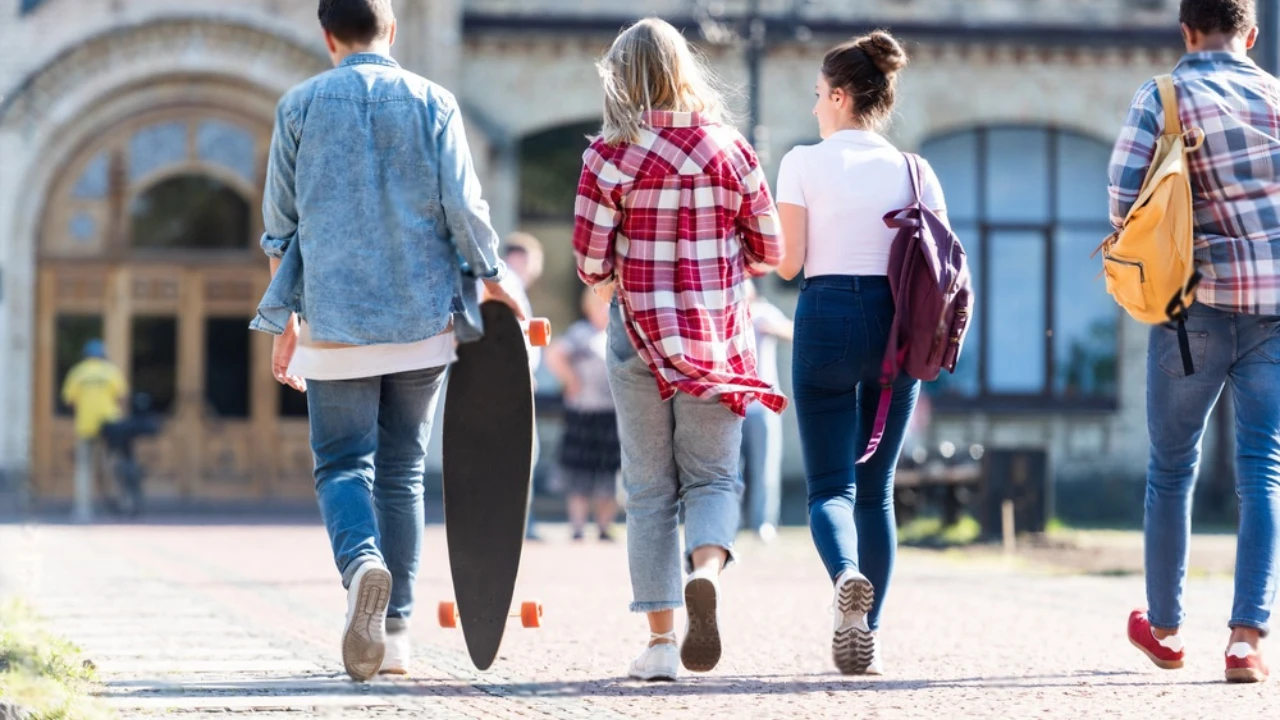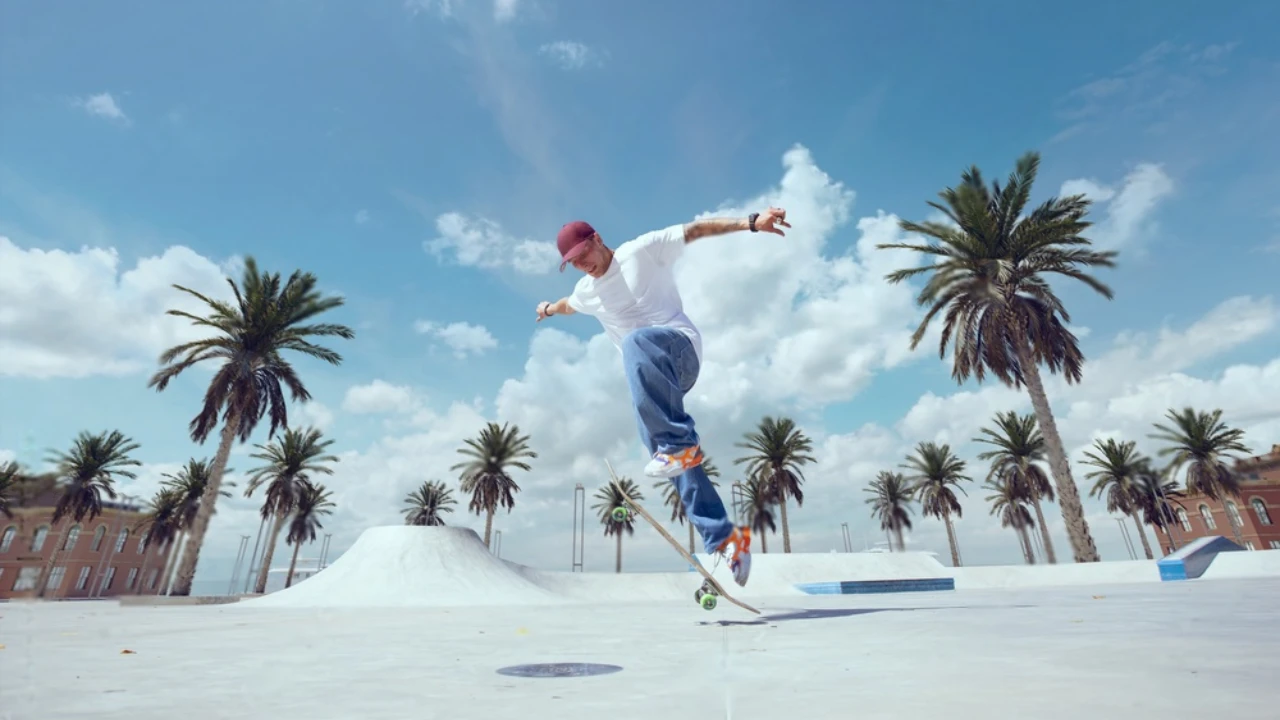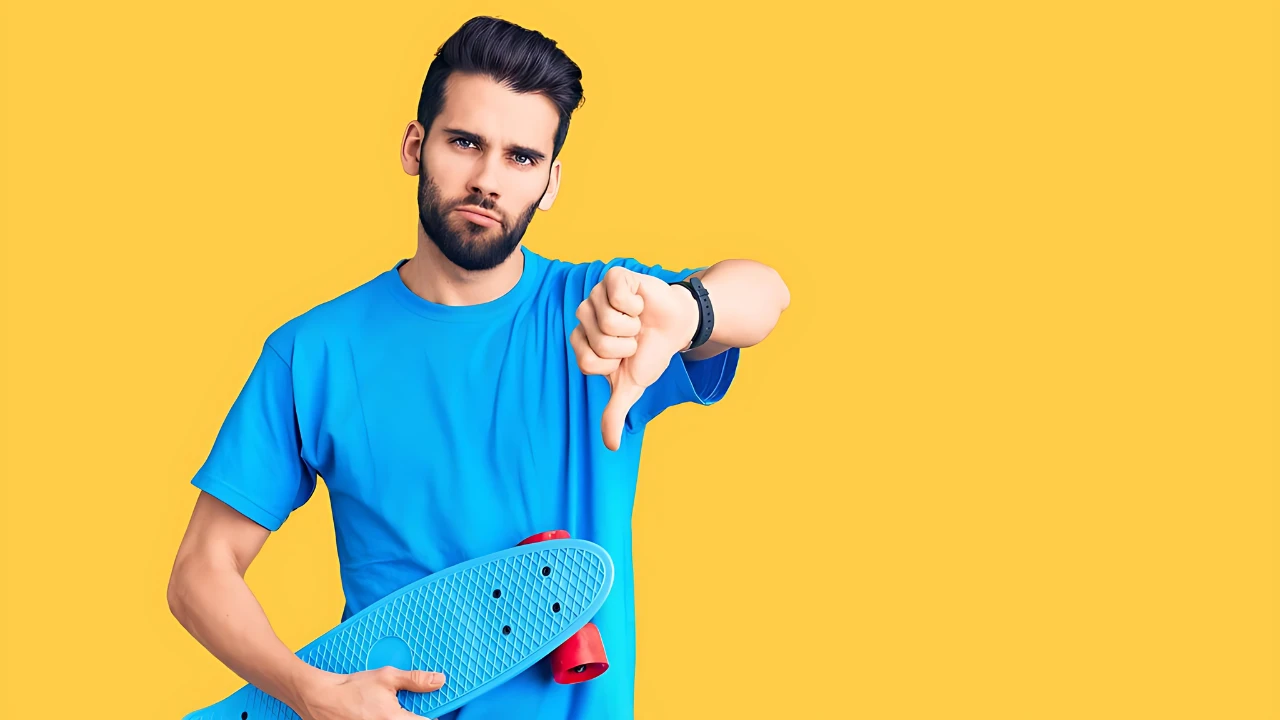The real reasons why do people hate skateboarders

Skateboarding’s transition from a niche hobby to a mainstream sport highlights its growing acceptance, yet the question persists: Why do people hate skateboarders? This article probes the skateboarding stigma, focusing on public perceptions, media portrayals, and broader societal impacts. The friction often arises from skateboarders using public spaces in ways that clash with traditional norms, leading to debates over safety and legality.
Media representations further exacerbate this issue by simplifying skateboarding culture into negative stereotypes, overshadowing the discipline, creativity, and community within. Moreover, societal misconceptions about skateboarding as mere rebellion obscure its benefits and the rich culture it embodies. Our exploration aims to unravel these misconceptions, fostering a more nuanced understanding of skateboarding’s role in culture.
- Key Takeaways
- Skateboarding fosters a strong sense of community and serves as an outlet for creativity and self-expression.
- Public misconceptions and media stereotypes contribute significantly to the stigma against skateboarders.
- Beyond physical health benefits, skateboarding can enhance mental well-being and community cohesion.
- Developing skate-friendly spaces and educational programs can mitigate conflicts and promote skateboarding as a positive community activity.
Table of Contents
Reasons – why do people hate skateboarders

1. Public Spaces and Legal Concerns
A primary reason behind the resentment towards skateboarders revolves around their use of public spaces. Skateboarders are often seen carving their paths through city plazas, parks, and sidewalks, areas not specifically designed for skateboarding. This leads to a clash with pedestrians and authorities, raising concerns over safety and legalities. The misconceptions about skateboarding as a reckless and unlawful activity only fuel the disdain.
2. Media Representation of Skateboarders
The media representation of skateboarders plays a significant role in shaping the public’s view. Stereotypical portrayals depict skateboarders as rebellious, unruly teenagers, neglecting the diversity and creativity within the skateboarding community. Such narratives reinforce the skateboarding stigma, overshadowing the sport’s positive aspects and the discipline it requires.
3. Skateboarding Culture and Lifestyle
Contrary to popular belief, skateboarding culture fosters a sense of community, innovation, and physical fitness. Skateboarders often share a bond, united by the thrill of mastering tricks and navigating urban landscapes. However, their lifestyle is frequently misunderstood and viewed as a form of rebellion rather than a legitimate sport or hobby. This public perception of skateboarding is skewed, overlooking the benefits of skateboarding such as creativity, resilience, and an active lifestyle.
4. Addressing Misconceptions About Skateboarding
One of the core issues fueling the question of why people hate skateboarders lies deeply rooted in misconceptions about skateboarding. Often, skateboarding is hastily judged as merely an act of rebellion or a hobby for those who refuse to conform to societal norms. This skewed perception overlooks the rich tapestry of skateboarding culture, which is vibrant, diverse, and full of individuals who are passionate, creative, and community-oriented.
Skateboarding is not a monolith; it encompasses people from all walks of life who find joy, freedom, and expression through the act of skating. This sport requires dedication, practice, and a level of discipline comparable to any traditional sport. Skaters spend countless hours perfecting their craft, learning from each other, and pushing the boundaries of what is physically possible.
5. The Noise and Destruction Argument
One common complaint that feeds into why do people hate skateboarders is the noise and perceived destruction associated with skateboarding. The sound of skateboards clattering on concrete and the potential damage to benches, rails, and ledges in public spaces often lead to friction between skateboarders and community members. Critics argue that this noise pollution and physical wear-and-tear demonstrate a lack of respect for public property, contributing to a negative image of skateboarders.
However, this perspective fails to acknowledge the lack of accessible skate parks or designated areas where skateboarders can practice without causing disturbances or damage. By investing in skateboarding facilities, communities can provide a solution that respects both the skateboarders’ passion and the public’s peace.
6. Risk Perception and Safety Concerns
Another point that exacerbates the skateboarding stigma revolves around the perception of risk and safety concerns. Skateboarding, by its nature, involves a certain level of risk, with the potential for falls and injuries. Observers often worry about the skateboarders’ well-being, as well as the possibility of accidents involving bystanders. This concern is valid but should not serve as a blanket condemnation of the sport.
Instead, promoting the use of safety gear, proper training, and responsible skating can mitigate these risks. It’s essential to balance the inherent risks of skateboarding with education and safety measures, rather than letting these concerns fuel unwarranted hatred.
7. Cultural Clash and Misalignment of Values
Lastly, the disdain towards skateboarders sometimes stems from a cultural clash and a misalignment of values. In many societies, traditional sports and recreational activities are celebrated for their organization, team spirit, and clear set of rules.
Skateboarding, with its individualistic nature and counter-culture roots, often challenges these conventions. This misalignment can lead to misunderstanding and prejudice against skateboarders, who are seen as not fitting the mold of conventional athleticism or hobbies. Recognizing skateboarding as a legitimate form of expression and sport requires an openness to diverse cultural values and an appreciation for the creativity and skill it embodies.
Comprehensive video on why people hate skaters
Each of these points underscores the multifaceted reasons behind why do people hate skateboarders. Addressing these concerns through dialogue, infrastructure development, and cultural understanding can pave the way for greater acceptance and appreciation of skateboarding and its community.
Creating Harmonious Solutions to Overcome Skateboarder Stigma

The issue of why people hate skateboarders presents a complex challenge, rooted in misunderstanding, stigma, and a clash of interests. However, effective solutions can promote understanding, respect, and mutual enjoyment of public spaces. Here’s how to address and solve these issues:
1. Develop Skate-Friendly Spaces
Creating designated skate parks and skate-friendly areas within communities is a foundational step. These spaces should be designed in collaboration with skateboarders to ensure they meet the needs of the community while minimizing disturbances in multi-use public areas. By providing appropriate venues for skateboarding, cities can reduce damage to public property and minimize conflicts between skateboarders and other community members.
2. Educational Programs and Awareness Campaigns
Implementing educational programs that focus on the positive aspects of skateboarding—such as physical health, creativity, and community—can shift public perception. Awareness campaigns can highlight stories of successful skateboarders and community skate projects that have contributed positively to local areas. Educating both the public and skateboarders about the importance of respecting shared spaces can foster a culture of mutual respect.
3. Enforcement of Respectful Skating Practices
Promoting respectful skating practices through community guidelines can help mitigate negative perceptions. Encouraging the use of safety equipment, respecting designated skate times in multi-use areas, and discouraging reckless behavior can address safety concerns and reduce nuisances. These guidelines should be developed with input from the skateboarding community to ensure they are reasonable and effective.
4. Community Dialogue and Integration Events
Organizing community events that include skateboarding demonstrations, workshops, and competitions can serve as a bridge between skateboarders and the rest of the community. These events provide an opportunity for non-skaters to understand the skills involved in skateboarding and for skateboarders to showcase their sport in a positive light. Integration events can foster community spirit and break down stereotypes.
5. Legal Support and Advocacy
Advocating for laws and policies that protect the rights of skateboarders while ensuring the safety and comfort of the general public is crucial. This involves working with local governments to develop skateboarding ordinances that are fair and reflective of the community’s needs. Legal support can also involve advocating for the construction and maintenance of skate parks as part of urban planning.
FAQs on Why do people hate skateboarders

Here are some frequently asked questions (FAQs) related to the topic of skateboarding and the societal perceptions around it:
1. Why is skateboarding often perceived negatively by the public?
Skateboarding can be perceived negatively due to its association with public disturbances, misconceptions about recklessness, and stereotypes that paint skateboarders as unruly or rebellious. These perceptions are often fueled by media representation and a lack of understanding of the sport’s culture and community.
2. Are skateboarders allowed to skate in public spaces?
The legality of skateboarding in public spaces varies by location. Some cities have designated skate parks and areas where skateboarding is allowed, while in other places, skateboarding on sidewalks, streets, or public plazas may be restricted or prohibited to prevent disturbances and ensure safety.
3. How can communities support skateboarding positively?
Communities can support skateboarding by providing designated skate parks and spaces for skateboarders to practice safely. Educational programs about skateboarding culture and safety can also help bridge understanding between skateboarders and the public. Encouraging respectful coexistence and recognizing skateboarding as a legitimate sport and form of expression is key.
4. What are the benefits of skateboarding?
Skateboarding offers numerous benefits, including physical exercise, improved balance and coordination, creativity, stress relief, and a sense of community among skateboarders. It also encourages perseverance and discipline as individuals work to master new tricks and skills.
5. How can misconceptions about skateboarding be addressed?
Addressing misconceptions about skateboarding involves promoting positive representations of the sport, highlighting the diversity and creativity of the skateboarding community, and educating the public about the discipline and benefits associated with skateboarding. Open dialogue and community engagement events can also foster a better understanding and appreciation of skateboarding.
6. Can skateboarding positively impact local communities?
Yes, skateboarding can positively impact local communities by providing youth and adults with a healthy recreational activity, fostering a sense of community and belonging, and even revitalizing underused public spaces. Skate parks can become hubs for social interaction, events, and competitions, promoting inclusivity and community spirit.
7. How can individuals contribute to changing the negative perception of skateboarding?
Individuals can contribute by advocating for skateboarding in their communities, sharing positive stories and experiences related to skateboarding, and engaging in respectful and responsible skateboarding practices. Supporting local skateboarding events and initiatives can also help change perceptions at a broader level.
Conclusion
Solving the issue of why do people hate skateboarders requires a multifaceted approach that addresses the root causes of the stigma and conflicts. Through the development of skate-friendly spaces, educational initiatives, respectful skating practices, community integration events, and legal advocacy, we can cultivate a society that embraces skateboarding as a valuable part of its cultural and recreational landscape.
By fostering understanding and respect on both sides, we can transform skateboarding from a point of contention into a source of community pride and cohesion.
Useful Links
